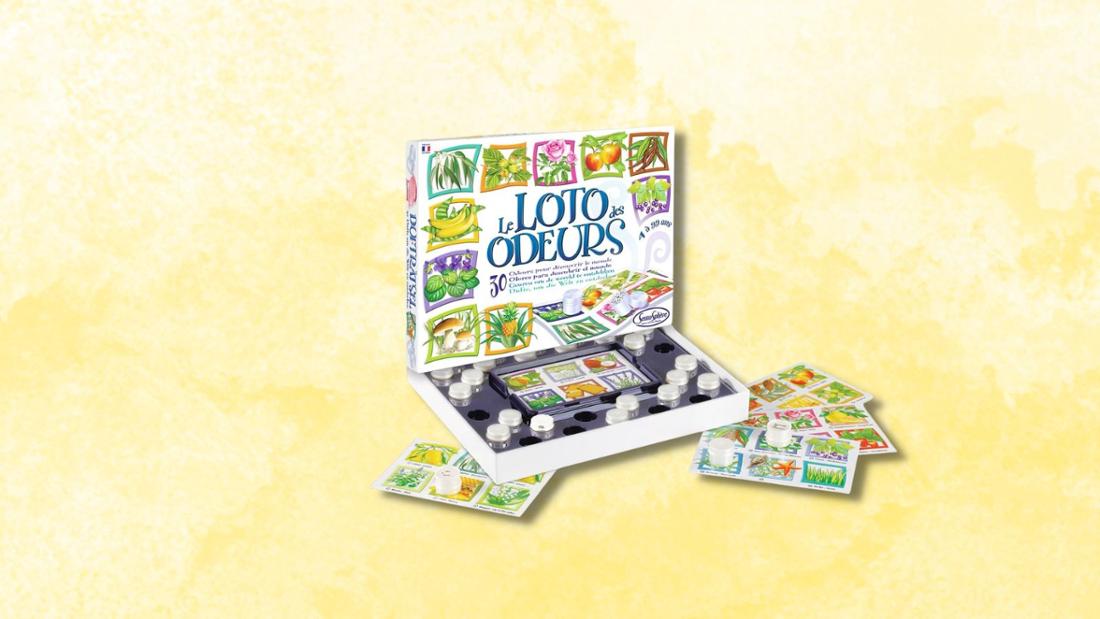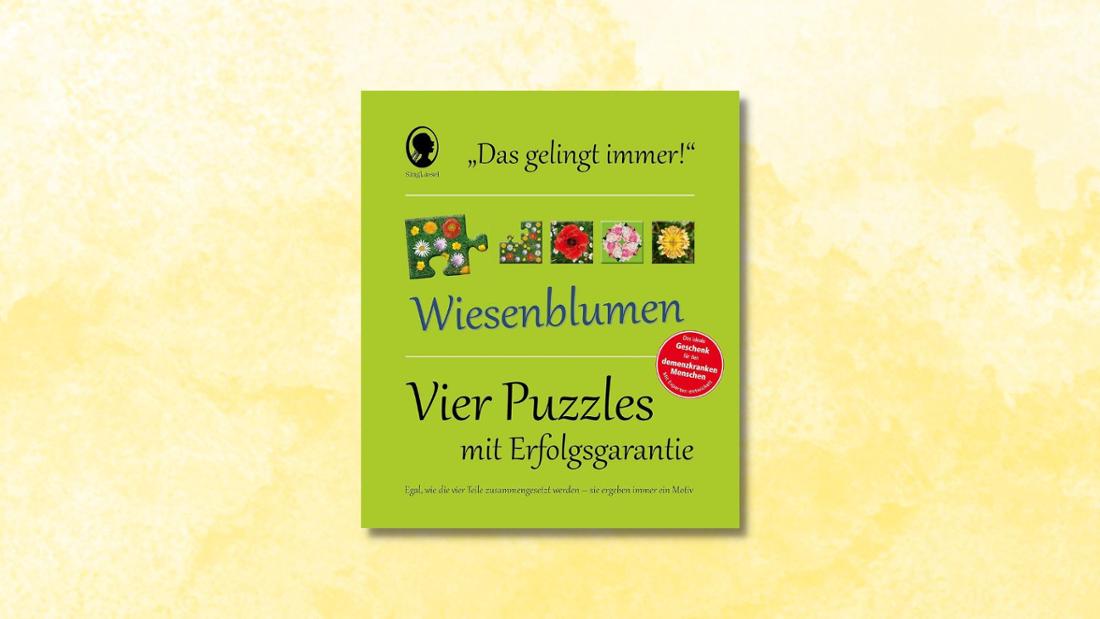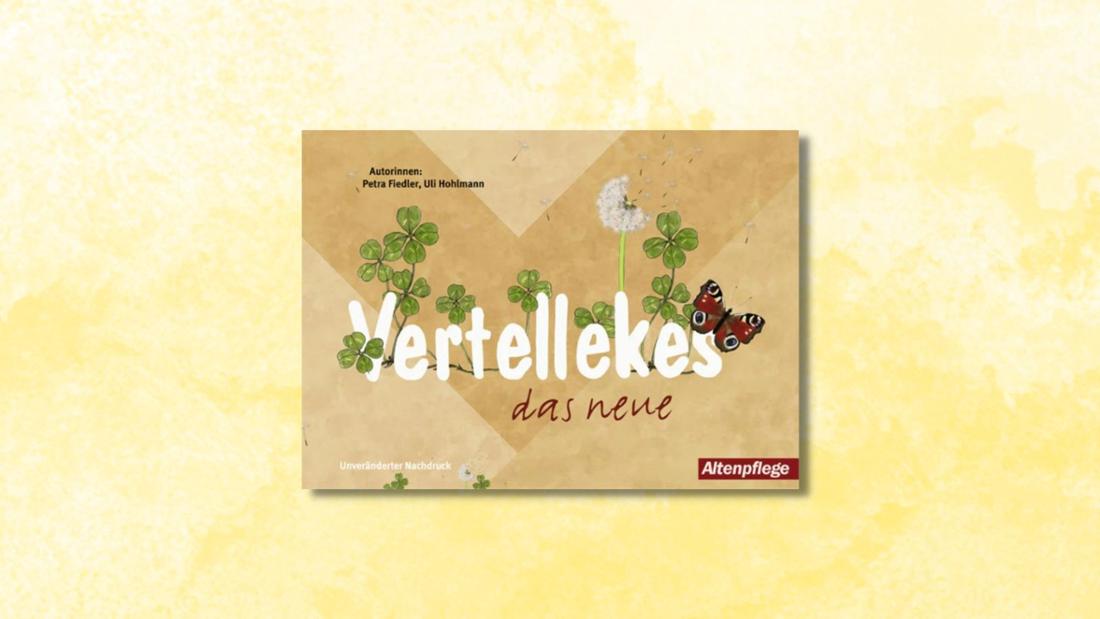Press
Scientists were amazed: a computer game can help people with dementia. But a special pillow also has great potential.
Note to our readers: We create product comparisons and deals for you. To make this possible, we receive a commission from partners. This doesn’t change anything for you.
The most important thing in
this message
- Key to dementia prevention is”,”position”:”1″,”storyElementPosition”:”9″,”storyElementCount”:”58″}}”>Why play a Key to dementia prevention is – Mental fitness as a basis
- Playful against dementia with Frieda & Nestelkissen”,”position”:”2″,”storyElementPosition”:”9″,”storyElementCount”:”58″}}”>With Frieda & Nestelkissen playful against dementia – Exercise and activity for the fingers
- play with people with dementia?”,”position”:”3″,”storyElementPosition”:”9″,”storyElementCount”:”58″}}”>What can you do? play with people with dementia? – Provide challenging variety
- good for dementia?”,”position”:”4″,”storyElementPosition”:”9″,”storyElementCount”:”58″}}”>Which games are good for dementia? – How to make the right choice
- What calms people with dementia?”,”position”:”5″,”storyElementPosition”:”9″,”storyElementCount”:”58″}}”>Which is calming People with dementia? – When restlessness and restlessness are a problem
- Superhero Mario with one 3D game Dementia can slow down”,”position”:”6″,”storyElementPosition”:”9″,”storyElementCount”:”58″}}”>How Superhero Mario with a 3D game can slow down dementia – New findings from medical science
A scent that brings back childhood memories. A superhero who can help Alzheimer’s patients via computer and a pillow named Frieda. Current findings show completely new and astonishing possibilities as to which games can help against dementia.
For grandchildren or children with parents or grandparents suffering from dementia, this is a wonderful opportunity to prevent the four stages of dementia or slow down Alzheimer’s disease through carefully selected gifts.
Why play a Key to dementia prevention is
Children play to get to know the world in a new way with all their senses. Old people with Alzheimer’s play so as not to forget the world.
Gaming is proving to be a powerful tool in preventing dementia. Playing presents the brain with complex challenges. This continually stimulates new neural connections in the brain: a key process that can help maintain and even expand mental capacity. Particularly Memory games can strengthen short- and long-term memory and thus support cognitive flexibility.
Loneliness and social isolation are considered major risk factors for dementia. Games offer valuable opportunities to connect with family or friends.
Dementia or Alzheimer’s – simply explained
While “dementia” is a general term for a range of cognitive impairments, “Alzheimer’s” refers to a specific disease. Alzheimer’s dementia is the most common form of dementia and accounts for around 60 to 80 percent of all dementia cases.
The terminology is similar to the difference between the word “fruit” as a general category and “apple” as a specific type of fruit.
With Frieda & Nestelkissen playful against dementia
Patients with dementia in hospital often feel bored or unneeded. The consequences can be tendencies to run away, scream, shout or fuss. These symptoms can be explained, among other things, by a lack of employment opportunities.
In nursing care, specialists repeatedly observe that dementia patients show restlessness, want to run away and are looking for something to do. Based on this situation, Beata Boronczyk, dementia representative at the Asklepios Harz Clinic in Goslar, came up with an idea: “Frieda”, a multisensory pillow especially for dementia sufferers.
This so-called nest pillow appeals to various senses – sight, hearing, smell, touch. Frieda contains different elements such as a white noise machine with soothing sounds or bags with different pillows that allow different sensory experiences.
Nestelkissen Frieda aims to reduce restlessness and provide a feeling of security. In short, to improve the quality of life of dementia patients. Frieda is currently only available for the medical sector, but other manufacturers now offer similar nest pillows.
What can you play with people with dementia?
One thing first: games for people with dementia should always be based on the severity of the illness. The motto is to challenge, encourage, but not overwhelm. It is important to choose games that are not too complex. This avoids frustration but still provides some challenge to stimulate the brain. Simple puzzlesmemory games and games that involve recognizing pictures and objects are usually good.
Which games are good for dementia?
Games that promote memory and cognitive skills are particularly valuable when dealing with dementia. Here we present some selected games with special added value.
1. Dementia memory games
This game combines classic “memory” with the popular tea kettle game. Fit together e.g. E.g. the melon, which simultaneously refers to the hat and the fruit, or beans, which simultaneously refers to coffee beans and green beans. The 36 picture cards are extra large and stable and easy for seniors to grip.
2. Sensory olfactory lottery game against dementia

Studies show that even severely demented patients remember their childhood when they smell certain scents. The aromas of forest, lavender or sea are hidden in 30 reusable cans. This is mentally stimulating and brings back beautiful memories.
3. Riddles and puzzles
“Always succeed” puzzle with meadow flowers

No matter how many and which pieces are put together in this puzzle – a complete motif always results. The puzzle promotes playful activity with a guaranteed experience of success. The timeless illustrations without childish elements make the puzzle a stimulating play option for older people.
Question and answer game Vertellekes

Questions for well-known puzzle types such as word collection and idiom puzzles. The basic idea of this question and answer game for older people is to encourage people to remember, think, smile and sing. All of this without fear of failure and pressure to perform. Expanded game instructions contain new insights into how to deal with people with dementia and open up further possible uses for the game.
Tip: Special music player for dementia patients
With the special one OER music player from the Netherlands, people with memory problems can play music independently.
The controls are reduced to 3 simple options:
1. Switch on music: open the lever
2. Next song: Press the large round button
3. Switch off the music: fold the lever down
4. Prevent dementia with music
Experts from the Professional Association of German Neurologists (BDN) emphasize that actively making music helps to absorb and process information better than passively listening to music. Here, simple wooden instruments can be a good way to stimulate the senses.
Which is calming People with dementia?
Many Alzheimer’s patients appear restless and restless. These activities provide balance:
- Handicrafts or painting: These activities can have a calming effect while providing sensory stimulation. Special coloring books for seniors offer simple and complex coloring motifs depending on the severity of the illness.
- Gardening: Engaging with plants and fresh air can have a therapeutic effect on Alzheimer’s sufferers.
- listen to music: Music from those affected’s youth can have a calming effect and bring back fond memories.
How Superhero Mario with a 3D game can slow down dementia
In the ongoing search for effective ways to prevent dementia, a remarkable study has shed light on the issue. Greg West’s team from the University of Montreal conducted the study with 33 participants between the ages of 55 and 75.
These were divided into three groups: One group immersed themselves in the three-dimensional world of Super Mario 64 one, a second group learned to play the piano on the computer, and a third control group was given no specific tasks. The Super Mario group played for half an hour five days a week without having any previous experience with 3D computer games.
The research results were clear. After six months, gray matter in the hippocampus increased in Super Mario 64 players. This is an important area of the brain that is responsible for memory and learning. The area for movement and balance also developed positively.
Why the computer game “Super Mario 64” can help with dementia
The secret behind the effectiveness of “Super Mario 64” and similar 3D games: These computer games require high concentration and challenge the mind. Players must virtually navigate complex three-dimensional environments, understand spatial relationships and make strategic decisions. These activities stimulate the hippocampus – a key element in the fight against dementia.
These findings open new horizons for improved mental health in old age. Computer games, often wrongly associated only with younger generations, could be a valuable resource for seniors in moderate doses and as part of a balanced lifestyle.
The editor wrote this article and then used an AI language model for optimization at his own discretion. All information has been carefully checked. Find out more about our AI principles here

